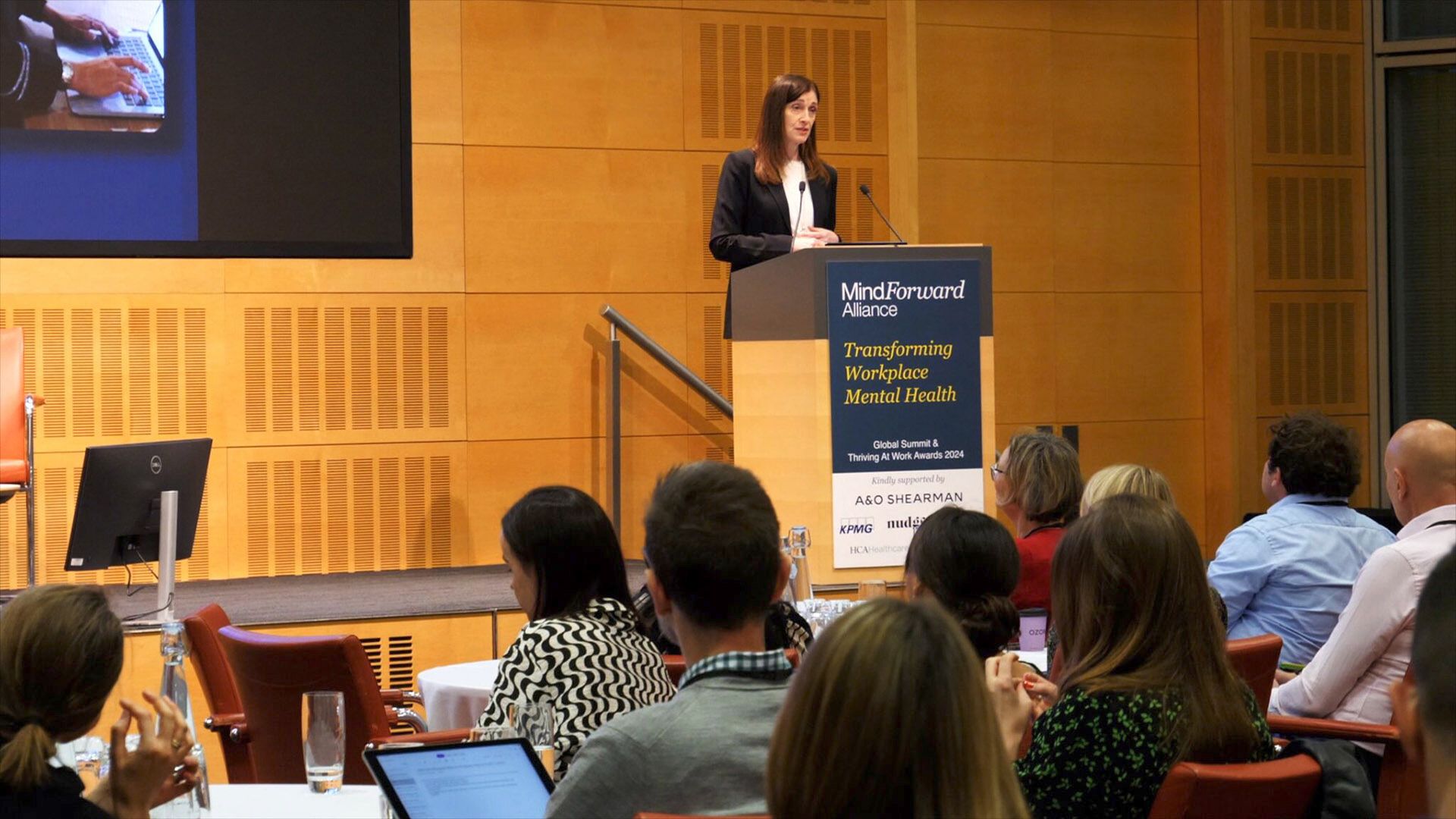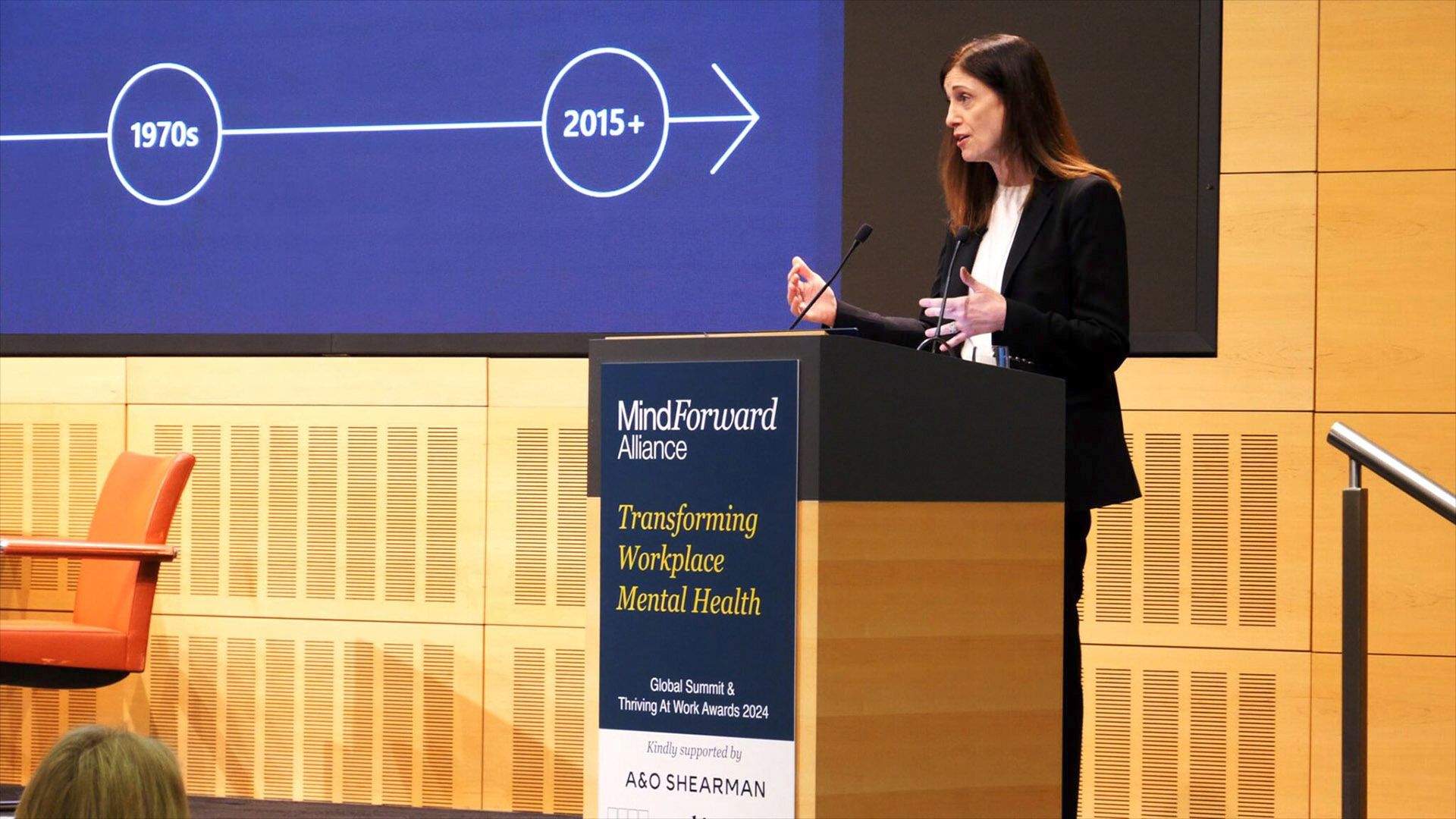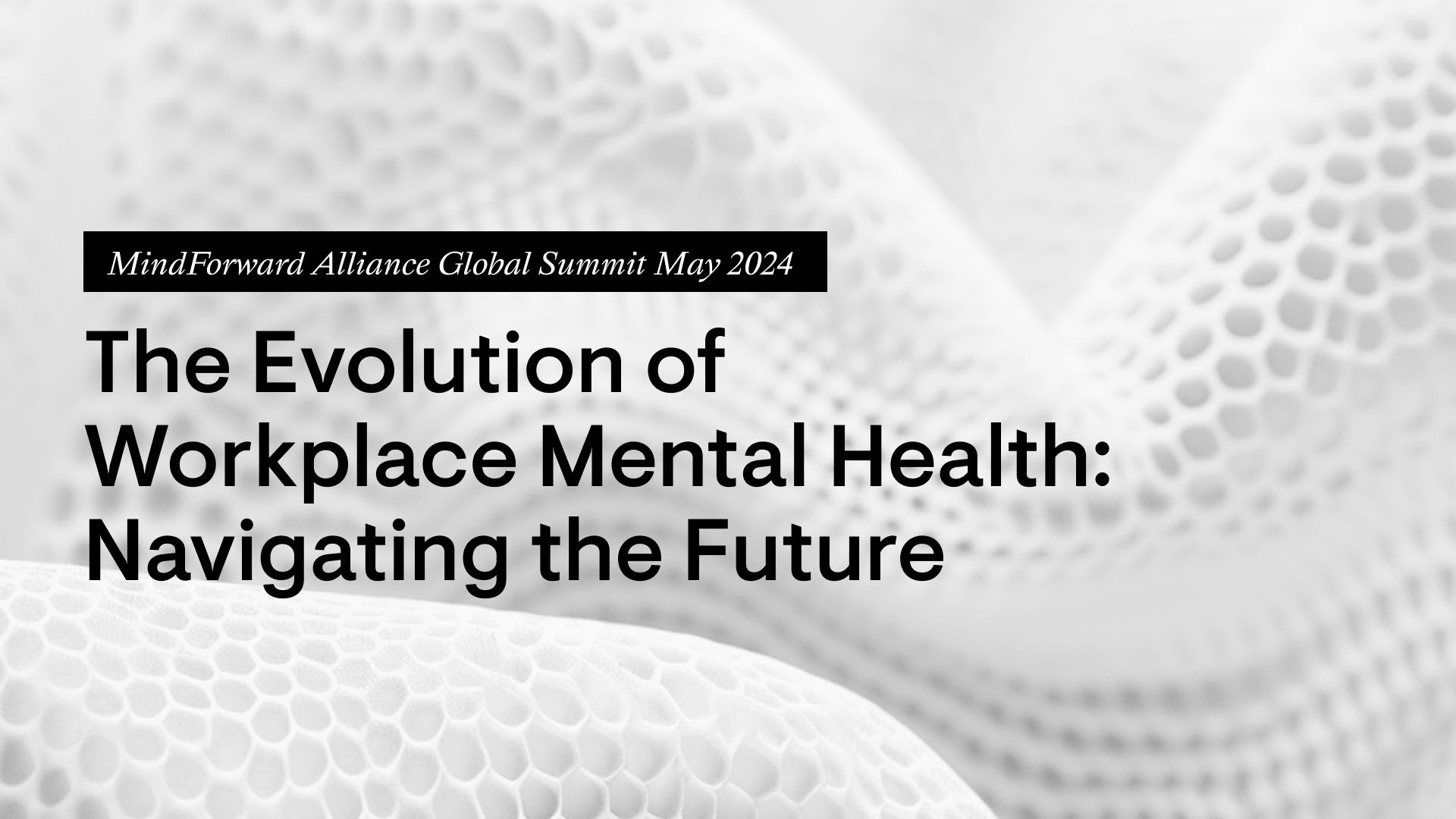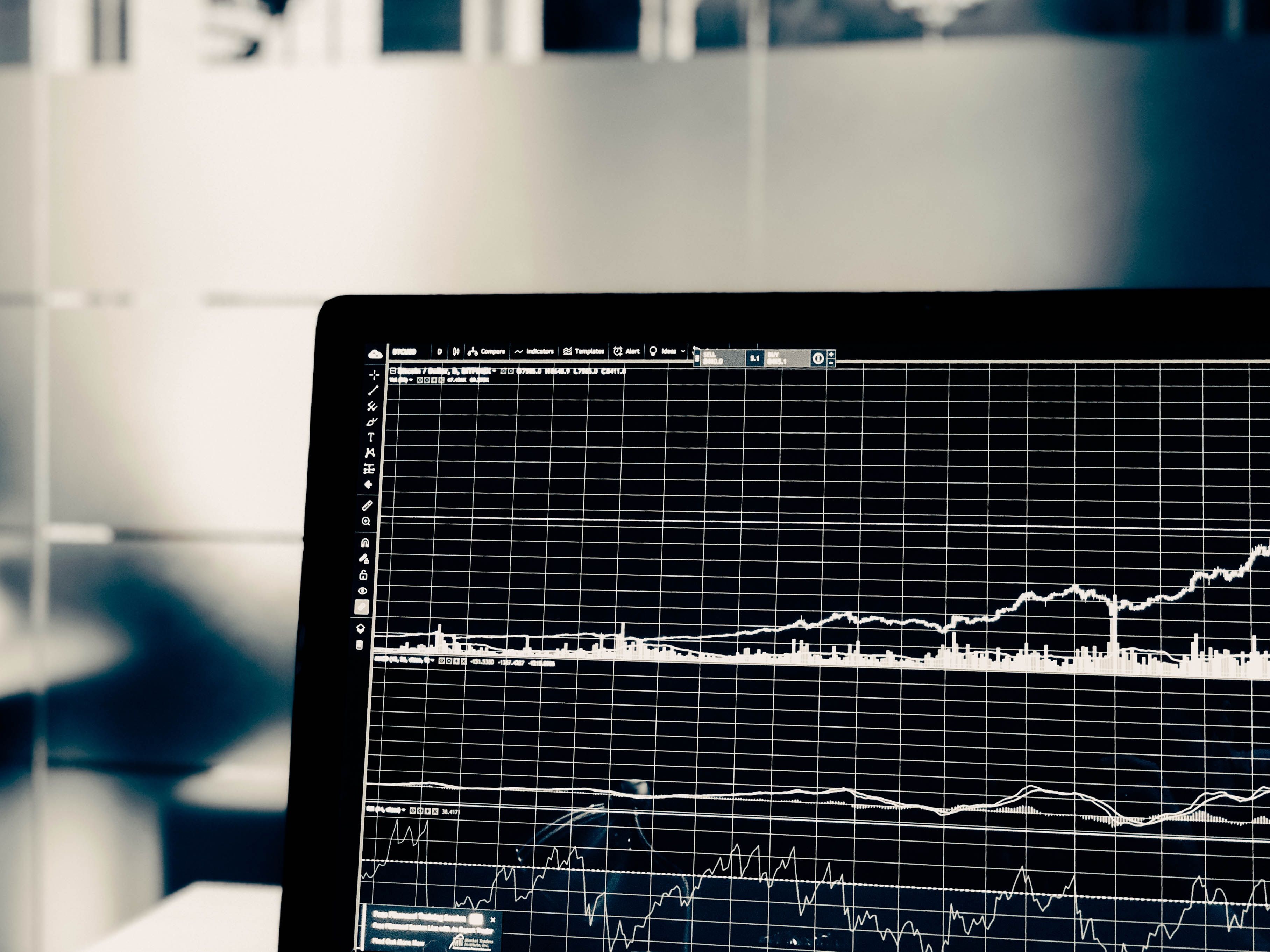Introduction
Yes, we're talking about AI. It won’t have escaped your notice that artificial intelligence (AI) has emerged as the single-most powerful force for transforming the modern organisation. Beyond its applications in productivity and efficiency, AI intersects with a critical aspect of our lives in work and beyond: our mental health. As organisations worldwide cite AI as their top opportunity, we find ourselves at a crossroads. How can we harness the potential of AI while safeguarding the wellbeing of our workforce? Or to go further, how can we use AI as part of a corporate wellbeing strategy? A stellar selection of industry experts joined global non-profit organisation MindForward Alliance at their Global Summit, delving into precisely this question, offering insights, inspiration, and actionable tactics.
A privilege to attend
I’d like to say a huge thank you to our friends and clients MindForward Alliance for hosting this remarkable event and inviting us to join. The privilege allowed us to engage with thought leaders, industry experts, and fellow professionals, with whom we explored fascinating conversations about the power of AI for workplace well-being, uncovering valuable takeaways that have really stuck with me. Thank you again Alison, Farimah, Poppy and team.

Key Takeaways on the Future of Workplace Mental Health
1. AI and Mental Health: An Unexpected Connection
At first glance, AI and mental health may seem unrelated. However, MindForward's CEO Alison Unsted argued that as organisations adopt AI technologies and as automation and AI-driven processes reshape job roles, employers have a moral obligation to protect workers’ mental health. The fear of job displacement, uncertainty, and change can create extra stress and anxiety, in an already anxious climate. Employers must proactively address these concerns, emphasising mental wellbeing with a holistic strategy that runs alongside technological advancements and re-skilling employees. Be cognisant of and plan to mitigate negative impact on your employees’ mental health.
2. The Business Imperative of Wellbeing
Investing in employee wellbeing isn’t just a feel-good initiative; it’s a strategic move. Dr. William Fleming, from the Wellbeing Research Centre, emphasised this during his keynote address, stating, “We know that if we were to create a Wellbeing 100, it would outperform the S&P and the FTSE.” In other words, prioritising well-being isn’t altruistic — it maximises shareholder returns. Organisations that foster a culture of wellbeing see improved productivity, reduced staff turnover, and enhanced overall performance.
3. Measuring Wellbeing: Beyond the Obvious
Consistent measurement is essential to demonstrate the ROI of wellbeing initiatives. However, it’s not just about tracking absenteeism or engagement scores, but also through regular surveys. HSBC’s Group Head of Wellbeing Andrew Gibbons spoke of their twice annual global surveys that allow them to drill into nuance and theme by multiple demographics and geographies, in order to extrapolate trends and vital learnings. Gibbons cited the inclusion of measures that can be benchmarked against other global studies to gain comparative data. Importantly, he highlighted that organisations should actively involve employees in shaping wellbeing surveys. What matters most to them? Recognition, flexibility, work-life balance—these factors contribute significantly to overall wellbeing. Consistency is key in questioning; by capturing longitudinal data, organisations can map results against outside factors (e.g. using PESTEL analysis), spot longer-term trends, refine their strategies and create meaningful change.
4. Blending Interventions: HSBC’s Approach
HSBC shared that one of its key factors in its highly successful wellbeing strategy is that rather than relying solely on organisational-level strategies, they are also careful to include popular and individual-level interventions. This holistic approach meets people where they are, and recognises that well-being isn’t a one-size-fits-all solution; it requires tailored interventions, and it requires some ‘easy wins’ to ensure widespread adoption. By adopting this dual approach, HSBC achieved a double-digit increase in employees’ reported comfort levels around discussing mental health.
5. The Power of Networks and Creative Interventions
In a session entitled ‘The role of creativity in workplace wellbeing’, John Power, Head of Division and CCBS at the Bank of England – a brilliant speaker, a definite Radiator – emphasised the significance of creative interventions and extracurricular activities as part of a successful workplace wellbeing strategy. Let’s explore this essential aspect further:
Building Relationships
- Networks play a pivotal role in fostering a sense of belonging and inclusion. For individuals who feel like outsiders or newcomers, having a network can make all the difference. It provides a support system, facilitates knowledge sharing, and encourages collaboration.
- Creative interventions, such as team-building activities, workshops, and social events, create opportunities for colleagues to connect beyond their daily tasks. Whether it’s a friendly game of football or an am-dram workshop, these activities break down barriers and encourage genuine interactions – all of this great for fostering a sense of belonging and enhancing workplace wellbeing.
Beyond Participation: Cultural Impact
- Interestingly, the impact of workplace wellbeing programs extends beyond direct participation; both John and members of the audience highlighted that even if colleagues don’t actively engage in every activity, knowing that their organisation prioritises wellbeing sends a powerful positive message to colleagues and potential recruits.
- Workplace culture evolves when wellbeing becomes part of its DNA. Employees appreciate an environment that invests in their physical, mental, and emotional well-being. It fosters loyalty, commitment, and a positive outlook, and this translates into a positive working environment, increased productivity and better staff retention.
- Consider the ripple effect: When one person participates in a creative intervention or joins a network, it creates a positive chain reaction. Others observe, become curious, and may decide to participate as well.These seemingly small actions collectively shape the workplace culture. They contribute to a supportive ecosystem where everyone benefits, even if they don’t immediately need the specific well-being program.

Conclusion
The MindForward Alliance Global Summit left me incredibly inspired. As employers such as those in the room, and us at ThreeTenSeven, embrace technological advancements, there is a moral and commercial imperative on employers to keep mental wellbeing in the Boardroom, if we're to make sure that AI serves as an ally rather than a threat. After all, for all of AI’s incredible potential, if it's embraced to the detriment of mental health then I'd call it a big fat backwards step for humankind. But with conversations like these, with MindForward Alliance at the helm, we can create workplaces where innovation thrives, and employees flourish.
Find out more about MindForward Alliance’s important work helping transform workplace wellbeing around the world online. Members can also watch back brilliant content from the Summit: The Evolution of Workplace Mental Health: Navigating the Future.




